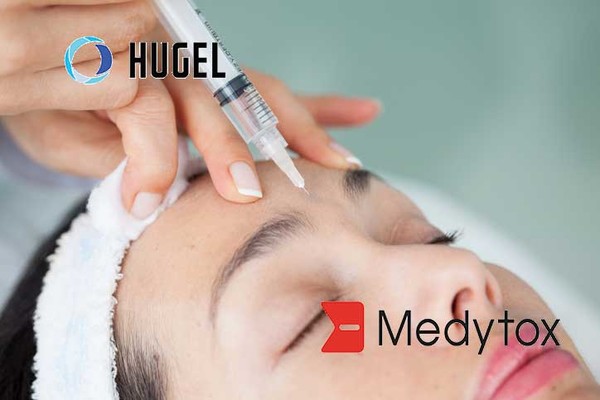Medytox said Friday it has filed a complaint with the U.S. International Trade Commission (ITC) against rival botulinum toxin (BTX) maker Hugel, alleging that the latter developed the treatment using a stolen manufacturing secret.

"Hugel has developed and produced a BTX product by misappropriating trade secrets belonging to Medytox and is trying to export the drug to the U.S.," Medytox said in the complaint.
Medytox called for the ITC to investigate Hugel's illegal act and impose a ban on Hugel's BTX product imports and prohibit the sales of already imported products.
According to Medytox's ITC complaint, filed by Medytox's U.S. counsel Quinn Emanuel Urquhart & Sullivan and acquired by Korea Biomedical Review, Medytox claimed that Hugel's assertions concerning the source of its C. Botulinum lacked credibility and that the company stole the strain in 2001 from Medytox CEO Jung Hyun-ho, who was a university professor and developer at the time.
"Hugel has stated publicly that it developed and manufactured the accused products using a novel strain of C. botulinum allegedly discovered from a food source in Korea in 2002," the complaint read. "These claims are false as Hugel has changed the details of its story at least four times, and Hugel could not have discovered a novel strain of C. botulinum from a food source back in 2002."
The complaint went on to say that this is because there had been no reported cases of developing botulinum toxin from a food source in Korea until 2003.
"In addition to Hugel's misleading statements about the source of its strain, Hugel's actions shortly before its alleged discovery of a novel strain of C. botulinum support Medytox's claims of theft and conversion," Medytox wrote in its complaint.
Medytox claimed that Moon Kyeong-yeop, one of the founders of Hugel, suddenly managed to isolate a novel strain of C. botulinum after a mysterious visit from one of Moon's acquaintances visited Jung's university lab in 2001.
"In 2001, CEO Jung received an unannounced and unexpected visit to Sun Moon University from a well-known Korean microbiologist Seo Yeon-soo," the complaint read. "While Jung did not know Professor Seo personally and their research areas were different, Seo was an acquaintance of the future founder and CEO of Hugel Moon."
Medytox alleged that shortly after Professor Seo's unannounced visit to Jung's lab, Moon started culturing C. botulinum in Professor Seo's lab at Samsung Biomedical Research Institute.
The complaint stressed that while the company has called into question the source of Hugel's strain on numerous occasions due to the incident, Hugel has refused to engage in productive discussions, insisting that Hugel obtained its strain from a food source in Korea in 2002, not from Medytox.
However, it is unsure if Medytox's complaint holds any credibility as the company's proof to back up its complaint remains confidential.
Asked what the company's proof was against such allegations, a Medytox official stressed that the company cannot discuss the proof now as it might help Hugel prepare for their litigation.
Hugel immediately refuted Medytox's claim saying that the latter's accusations are groundless.
"There are no facts or circumstances to support Medytox's absurd claims throughout the development process, including the timing and process of developing our botulinum toxin formulation," Hugel said in a press release. "According to media reports in the past, Medytox has distributed botulinum toxin preparations of quality that are out of the product approval standards through unorthodox methods such as document manipulation.
This has resulted in the Ministry of Food and Drug Safety canceling the product license of Medytox's products, she said.
The official stressed that Medytox had raised an unreasonable suspicion against the top Korean company in the industry, which has occupied the top spot in the Korean market for the past six years by developing and distributing products legitimately and successfully advancing into the Chinese and European markets, raising the status of the Korean botulinum toxin industry.
"Medytox's ITC complaint can be seen as a typical obstruction in the run-up to our entry into the U.S. market," the official said.
However, Medytox claimed that the company would be free of any fees from the ITC complaint and further lawsuits as they have received funding from an investment firm specializing in litigations.
"Unlike the last time, the litigation will not adversely affect Medytox's financial statements as the investment company bears all litigation costs," a Medytox official said to Korea Biomedical Review.
Asked which investment company will bear the burden of the litigation costs, the official noted that it is confidential, citing contractual reasons.

